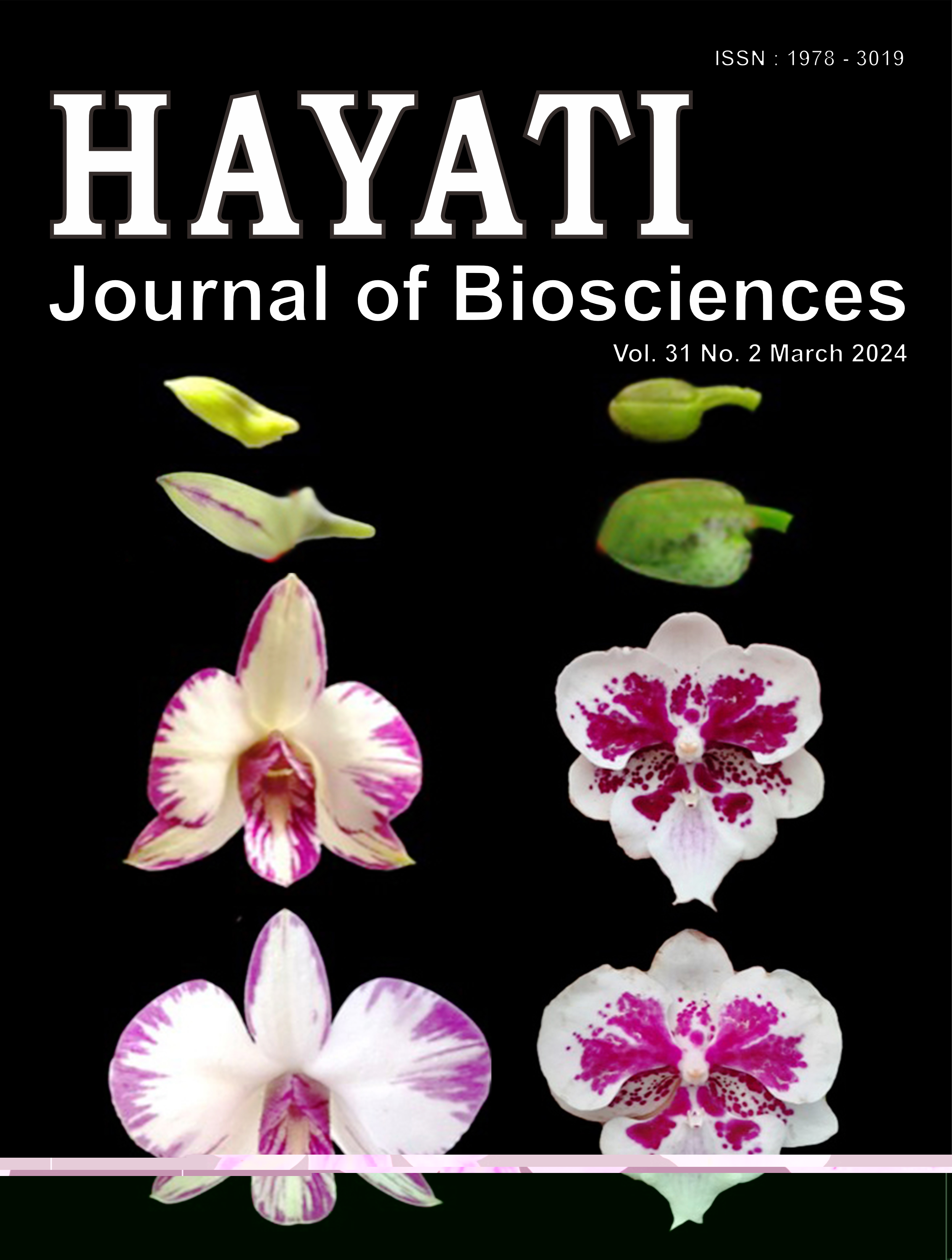The Toxicity Test of Synthetic Insecticides on Tetragonula laeviceps (Apidae: Meliponini)
Abstract
Intense insecticide application is thought to cause a decline in bee colonies worldwide. Bees are effective pollinators in increasing the production of agricultural commodities. The stingless bee Tetragonula laeviceps (Apidae: Meliponini) is widely cultivated and found around plantations. The insecticides used in the toxicity test were imidacloprid 200 g/L, fipronil 50 g/L, lambda-cyhalothrin 25 g/L, profenofos 500 g/L, and chlorantraniliprole 50 g/L followed by a semi-field test using imidacloprid, fipronil, and profenofos insecticides on the cucumber plant. The LC50 value showed that exposure to imidacloprid, fipronil, and profenofos insecticides caused toxic effects on T. laeviceps by contact and orally. Lambda-cyhalothrin was found harmful on contact exposure, in contrast, chlorantraniliprole was harmful through oral. Classification of insecticide toxicity based on LD50 contact for imidacloprid, fipronil, lambda-cyhalothrin, and profenofos were very toxic and needed a risk assessment. However, chlorantraniliprole was classified as moderately toxic and low risk. In semi-field test results, imidacloprid and fipronil insecticides caused a significant decrease in the leave-return and bee-visiting activity on cucumber flowers. These insecticides also produced a low average yield of fruit weight. Insecticide application can affect the role of T. laeviceps as the pollinator which impacts the production of agricultural commodities.
Downloads
Copyright (c) 2023 Ina Rubiatul Hasanah, Nadzirum Mubin, Dewi Sartiami, Windra Priawandiputra, Dadang

This work is licensed under a Creative Commons Attribution-NonCommercial 4.0 International License.
HAYATI J Biosci is an open access journal and the article's license is CC-BY-NC. This license lets others distribute, remix, tweak, and build upon author's work, as long as they credit the original creation. Authors retain copyright and grant the journal/publisher non exclusive publishing rights with the work simultaneously licensed under a https://creativecommons.org/


















.png) IPB University
IPB University Department of Biology
Department of Biology The Indonesian Biological Society
The Indonesian Biological Society 

